
Ali Miraj 6pm - 9pm
18 December 2019, 11:38
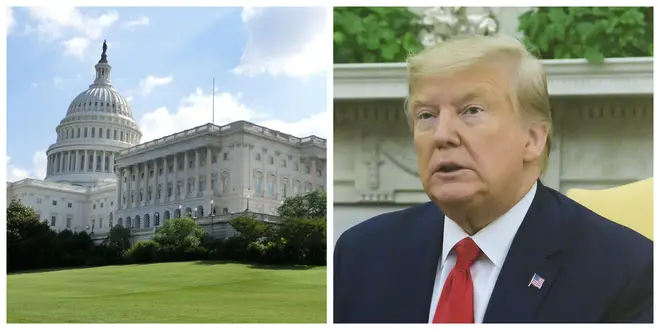
President Donald Trump is on the cusp of being impeached as the House of Representatives prepares to vote on the charges.
A historic debate will take place this afternoon over allegations that he abused his power and obstructed US congress.
If the vote passes, it would make Mr Trump just the third US president to be impeached and leave a defining mark on his tenure at the White House.
Ahead of the vote, the President fired off a furious letter to house speaker Nancy Pelosi, denouncing the "vicious crusade" against him.
He also acknowledged he was powerless to stop the expected outcome.
Mr Trump wrote: "When people look back at this affair, I want them to understand it, and learn for it, so that it can never happen to another president again."
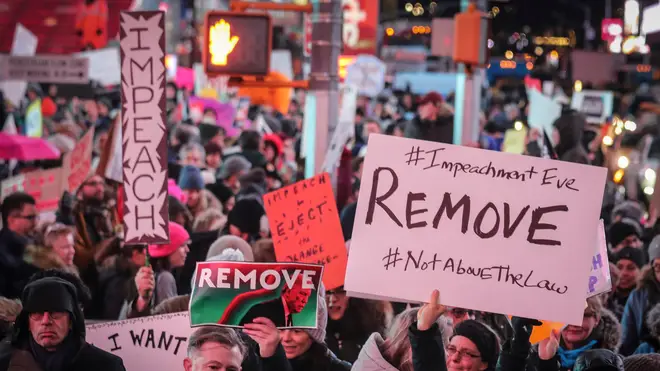
He also defended his "absolutely perfect" phone call that sparked the impeachment inquiry.
Ms Pelosi, who warned earlier this year against pursuing a strictly partisan impeachment, nonetheless has the necessary numbers from Democrats to approve it.
She wrote to colleagues: "Very sadly, the facts have made clear that the president abused his power for his own personal, political benefit and that he obstructed congress.
"In America, no-one is above the law.
"During this very prayerful moment in our nation's history, we must honour our oath to support and defend our constitution from all enemies, foreign and domestic."
The undertaking to impeach the President set to unfold over more than six hours of debate on Wednesday.
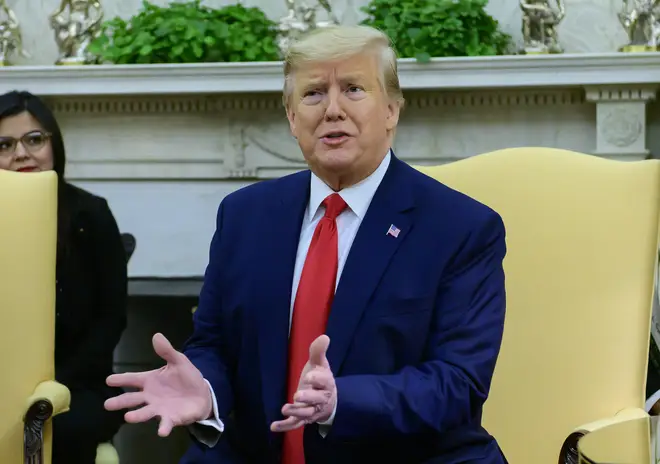
The accusations against the President are that he abused his power by pressuring Ukraine to investigate his political rival and then obstructed lawmakers by directing his administration defy subpoenas for documents and testimony.
But Mr Trump claims his actions were justified and he refused to cooperate with the investigation which he viewed as partisan and biased.
The question for members of congress, and Americans, is whether those actions, and the White House's block on officials testifying for the house investigation, are impeachable offences.
Ahead of Wednesday’s debate, Mr Trump also accused the Democrats of acting out of "Trump Derangement Syndrome", still smarting from their 2016 election losses.
He wrote: "You are the ones bringing pain and suffering to our Republic for your own selfish, personal political and partisan gain.”
Portraying himself as a blameless victim, Mr Trump compared the impeachment inquiry to the "Salem Witch Trials".
Asked later if he bore any responsibility for the proceedings, he said: "No, I don't think any. Zero, to put it mildly."
But the house impeachment resolution says Mr Trump abused the power of his office and then tried to obstruct the investigation in congress like "no other" president in history.
Mr Trump "betrayed the Nation by abusing his high office to enlist a foreign power in corrupting democratic elections", the resolution says.
"President Trump, by such conduct, has demonstrated that he will remain a threat to national security and the constitution if allowed to remain in office."
....They want to Impeach me (I’m not worried!), and yet they were all breaking the law in so many ways. How can they do that and yet impeach a very successful (Economy Plus) President of the United States, who has done nothing wrong? These people are Crazy!
— Donald J. Trump (@realDonaldTrump) December 18, 2019
Ahead of the vote, centrist Democratic members of congress, including many first-term freshmen who built the House majority and could risk their re-election in districts where the President is popular, announced they would vote to impeach.
Republicans disagreed, firmly.
Senate majority leader Mitch McConnell set the partisan tone for the next step, as attention will shift to the senate which, under the US constitution, is required to hold a trial on the charges.
The Republican-majority chamber is all but sure to acquit the president.
The trial is expected to begin in January.
Impeachment Poll numbers are starting to drop like a rock now that people are understanding better what this whole Democrat Scam is all about!
— Donald J. Trump (@realDonaldTrump) December 17, 2019
Impeachment is a charge of misconduct made by a legislative body against an official in a public office, including the president.
If successful, impeachment does not necessarily lead to removal from office and it is not a criminal trial.
However, it is the first step in the eventual downfall of a high-level official and will form the basis of a trial.
The US Constitution makes it clear that a president "shall be removed from office on impeachment for, and conviction of, treason, bribery, or other high crimes or misdemeanours."
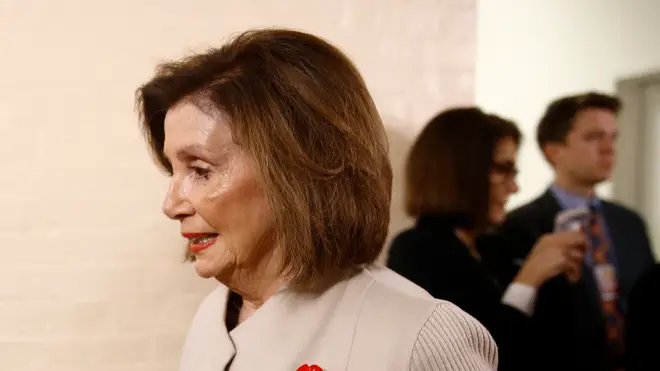
Today’s debate is taking place in the House of Representatives and will last around six hours.
It will culminate on a vote on two charges - that President Trump abused his power and obstructed US congress.
The vote is likely to pass through the lower House.
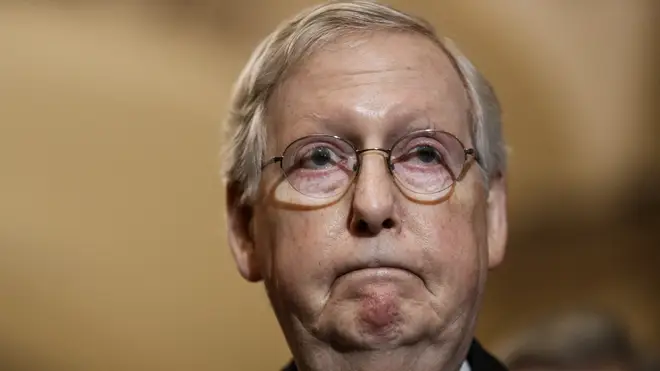
If the vote is successful, President Trump will face a trial in the Senate next year, most likely in January.
The format of the debate is not set but will be determined by Republican Senate leader Mitch McConnell and Democrat counterpart Chuck Schumer.
A two-thirds majority is needed to convict and oust Mr Trump.
Unlikely.
The Republicans control the 100-seat chamber with a 53-47 majority and are expected to vote along party lines.
No President has ever been successfully ousted after impeachment.